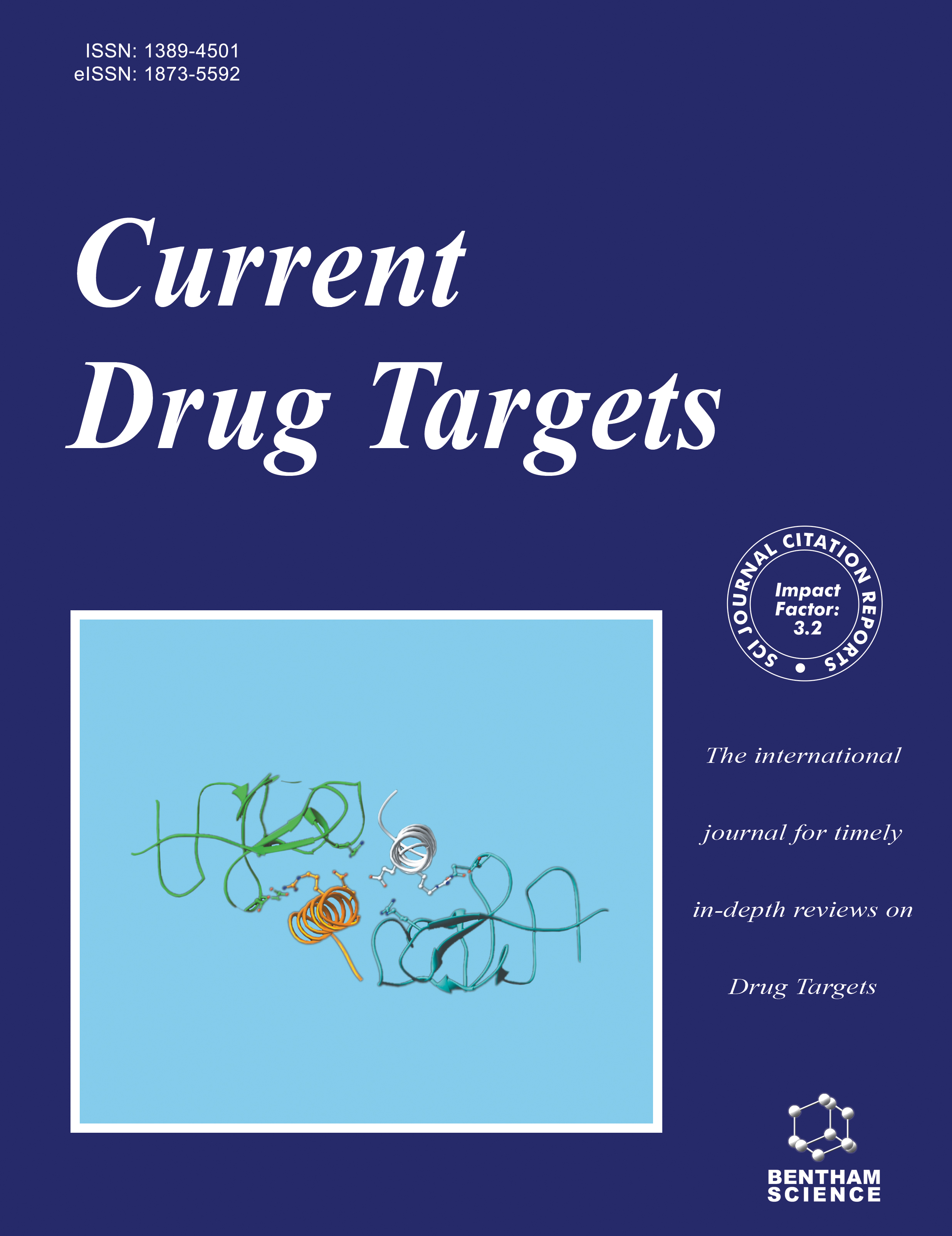-
oa Editorial [Hot topic: Anti TNF-α Treatment for Crohn's Disease: “Menage A Trois” (Guest Editor: Silvio Danese)]
- Source: Current Drug Targets, Volume 11, Issue 2, Feb 2010, p. 136 - 137
-
- 01 Feb 2010
Abstract
Crohn's disease is a chronic inflammatory bowel disease (IBD) that can affect the whole gastrointestinal tract, especially the ileo-colonic tract. The etiology of the disease still remains unknown [1]. Several mechanisms involved in the pathogenesis of the disease have been investigated, and Tumour Necrosis Factor (TNF)-α pathway seems to play a crucial role in the onset and maintenance of the chronic inflammatory process [2]. In the last fifteen years, the introduction of biological drugs acting as anti TNF-α agents caused a revolution in the treatment of IBD, especially for Crohn's disease. The introduction of the first anti TNF-α monoclonal antibody, infliximab, has changed the natural history of the disease, overall in terms of hospitalisation rate and need for surgery [3]. Up to now, three anti TNF-α have been demonstrated to be effective in the treatment of Crohn's disease: infliximab, adalimumab and certolizumab pegol. Infliximab is a chimeric monoclonal antibody that has been introduced in the treatment of Crohn's disease since 1995. During those years, efficacy of infliximab in inducing clinical remission [4], maintaining a longterm steroid-free remission, healing mucosal lesions, closing fistulas and reducing hospitalization rate and need for surgery [5] has been widely investigated and confirmed. Adalimumab is a more recent anti TNF-α fully human antibody. Although it has been introduced about ten years after infliximab, many studies have shown it to be as effective as infliximab in inducing and maintaining remission, healing mucosal lesions and closing fistulas, and decreaseing hospitalisation and need for surgery [6, 7]. Certolizumab is a pegylated anti TNF-α, given subcutaneously. Its efficacy in inducing and maintaining remission has been investigated in some randomised controlled trials, even though response and remission rates have been lower than the other two anti TNF-α agents [8]. It is currently used in clinical practice in Switzerland and Unites States, but not in Europe. Although the role of these drugs in the management of Crohn's disease is nowadays well established, several questions on different aspects of biological therapy remain unanswered. No direct comparison between infliximab, adalimumab and certolizumab has been ever done, so there is no clear evidence on what is the best agent to start with. Early introduction of biological agents in the treatment of Crohn's disease resulted to change the natural history of the disease in children [9], but no prospective studies have been conducted in adults. Long-term use of anti TNF-α agents in maintaining remission, that is more than 52 weeks, seems to be effective and safe [10], but no studies are able to tell the clinicians how long the therapy should be prolonged and what are risks and benefits of such long therapy. Risk of malignancies, infections and degenerating diseases has been also investigated. Anti TNF-α seem not to increase the risk for malignancies and degenerating diseases, and not significantly affect the risk to contract opportunistic infections, especially when used as monotherapy [11]. All studies mostly concern the use of infliximab, and they are limited in a relatively short time. Then, further studies on long-term safety, especially on the most recent anti TNF-α agents are needed as well as more prospective studies aim to evaluate the best strategies to prevent adverse events, especially for opportunistic infections. The use of anti TNF-α during pregnancy is still to be defined. A recent review of the Food and Drug Administration on the use of anti TNF-α for any indication during pregnancy has been published, showing that risk for congenital abnormalities increased. Other studies suggest no increase of the risk in IBD [12]. Biological agents have been largely studied in luminal and penetrating disease. Anyway, the role of anti TNF-a drugs in special situations, as a prevention of post-operative recurrence (POR) is still to be evaluated. Infliximab has been shown to be effective to prevent POR compared to placebo, even if on a small number of patients and on a short period of follow-up [13]. Confirmation of these preliminary results may open new therapeutic ways and, hopefully, change the natural history of the disease once more. At the moment, no evidence supports the use of anti TNF-α agents in preventing fibrosis. Anyway, some studies have been shown that the use of anti TNF-α can lead to significant regression of strictures in CD [14, 15]. This means that those agents may have positive effects by interfering and delaying the fibrogenesis at early stages. A clearer knowledge of the processes underlying fibrogenesis in CD, may help investigators to find a therapeutic role and timing for biological agents with this specific aim. “Menage a trois” among infliximab, adalimumab and certolizumab is a tremendous therapeutic choice for moderate-tosevere Crohn's disease. Several matters about the use of anti TNF-α agents remain unanswered and need further investigation.


